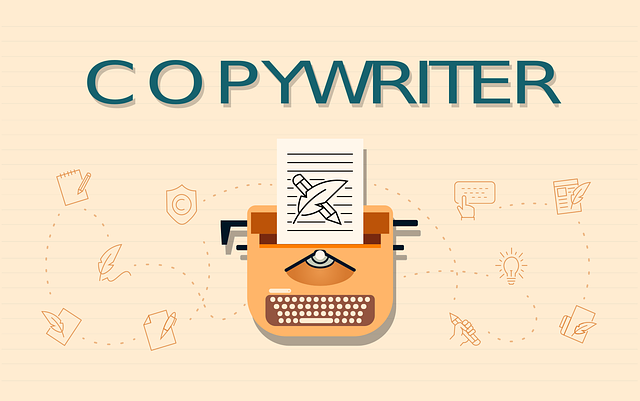
Understanding Copywriting and Its Various Types and Applications
One essential component of marketing and communication is copywriting. It entails writing interesting and convincing content to encourage readers to do particular activities, including buying something, signing up for a subscription, or interacting with a company.
Writing well is only one aspect of effective copywriting; other factors include knowing your target audience, your brand, and the content you want to get over in a way that will compel readers to take action.
This essay explores the fundamentals of copywriting, defining it and highlighting its importance in the contemporary world. We'll look at the responsibilities of a copywriter, the expert who practices the trade, and the abilities they offer.
We will also examine the numerous kinds of copywriting, each with a unique function and channel within the larger marketing plan.
We'll wrap off with talking about the general significance of copywriting in the current digital environment, where it's more important than ever to grab and maintain the audience's attention.
What is Copywriting?
Copywriting is the art and science of crafting written text, known as copy, for advertising or marketing purposes. The primary goal of copywriting is to persuade readers to take a particular action, such as making a purchase, subscribing to a newsletter, or engaging with a brand. Unlike other forms of writing, copywriting is specifically designed to influence the reader’s decision-making process.
Effective copywriting combines creativity with a deep understanding of the target audience. It requires the ability to write clear, compelling messages that speak directly to the reader’s needs and desires.
Whether it’s an enticing product description, an attention-grabbing advertisement, or an engaging social media post, copywriting aims to motivate the reader to take a desired action.
Copywriting is everywhere on websites, in emails, on social media, in print ads, and more. It’s a vital component of marketing strategies, helping businesses communicate their value propositions and connect with their audience on a deeper level. By blending persuasive language with strategic thinking, copywriting plays a crucial role in driving business success.
The Importance of Copywriting
In an age where consumers are inundated with information from multiple sources, effective copywriting stands out as a crucial element in capturing attention and driving engagement. Here’s why copywriting is important:
#1. Building Brand Identity: Consistent and well-crafted copy helps establish a strong and recognizable brand voice. A distinctive voice sets a brand apart from its competitors and fosters a deeper connection with the audience.
Whether it’s through a quirky tone, professional language, or empathetic messaging, a solid brand voice builds trust and loyalty over time.
#2. Engaging the Audience: Engaging copy keeps readers interested and encourages longer interaction with the brand. In a world where attention spans are short, captivating content that resonates with the audience is key.
Engaging copy not only grabs attention but also holds it, making readers more likely to explore a brand’s offerings and stay connected.
#3. Driving Conversions: Persuasive copy is essential for converting potential leads into customers. Effective copywriting addresses the pain points and desires of the target audience, presenting solutions in a compelling way.
Clear calls to action (CTAs) guide readers towards taking the next step, whether it’s making a purchase, signing up for a service, or requesting more information.
#4. Improving SEO: Copy that is optimized for search engines can enhance a website's ranking and visibility, driving more organic traffic. SEO copywriting involves integrating relevant keywords and phrases naturally into the content, helping search engines understand the context and relevance of the website.
Improved search engine rankings lead to higher visibility, increased web traffic, and more opportunities for conversion.
#5. Enhancing Customer Experience: Well-written copy improves the overall customer experience by providing clear and concise information. It helps customers understand products, services, and brand values quickly and easily.
Effective copywriting can also address common customer questions and concerns, reducing friction and making the purchasing process smoother.
#6. Supporting Marketing Campaigns: Copywriting is integral to the success of various marketing campaigns, from email marketing to social media promotions. Tailored messages for different platforms and audiences ensure that the campaign's goals are met effectively.
Compelling copy can boost click-through rates, enhance engagement, and increase the overall effectiveness of marketing efforts.
#7. Creating Emotional Connections: Powerful copywriting can evoke emotions, making the audience feel connected to the brand on a personal level. Emotional connections are crucial for building brand loyalty and advocacy.
Whether it’s through storytelling, evocative language, or relatable scenarios, copy that touches the heart can turn casual readers into passionate supporters.
Who is a Copywriter?

A copywriter is a skilled professional who specializes in crafting persuasive and compelling text for a wide range of marketing and advertising purposes. These professionals possess a unique blend of creativity, strategic thinking, and a deep understanding of consumer psychology. Copywriters are adept at transforming complex ideas and brand messages into clear, concise, and impactful content that resonates with the target audience.
They play a crucial role in shaping a brand's identity and communication strategy, helping to convey its values, offerings, and unique selling propositions effectively. Copywriters are responsible for creating various types of content, including website copy, blog posts, social media updates, email campaigns, advertisements, product descriptions, and more.
Copywriters often collaborate closely with other members of the marketing team, including graphic designers, web developers, and marketing managers, to ensure that the copy aligns with the overall marketing objectives and branding guidelines. They may also conduct research to understand the target audience's preferences, pain points, and motivations, enabling them to tailor their messaging for maximum impact.
Copywriters can work in a variety of settings, including in-house for companies, as part of an advertising or marketing agency, or as freelance professionals. Regardless of their work environment, copywriters must stay updated on industry trends, consumer behavior patterns, and emerging technologies to remain effective in their roles.
Different Types of Copywriting
Copywriting encompasses various forms, each tailored to specific marketing needs and channels.
Here are the different types of copywriting:
#1. SEO Copywriting
SEO (Search Engine Optimization) copywriting involves creating content optimized for search engines. The aim is to improve a website's visibility in search engine results pages (SERPs) by incorporating relevant keywords and providing valuable content that matches search intent.
SEO copywriters conduct keyword research and strategically integrate keywords into the content to attract organic traffic and enhance the website's ranking.
#2. Direct Response Copywriting
Direct response copywriting is designed to prompt an immediate action from the reader, such as making a purchase or subscribing to a newsletter.
This type of copywriting is prevalent in email marketing, landing pages, and sales letters, where a clear and compelling call to action (CTA) is crucial.
Direct response copywriters focus on crafting persuasive messages that address the reader's needs and desires, driving them to take the desired action.
#3. Marketing Copywriting
Marketing copywriting covers a broad range of materials, including brochures, advertisements, and promotional emails. The primary objective is to promote products or services and persuade the audience to act.
This type of copywriting aligns closely with the brand’s overall marketing strategy, conveying key messages and value propositions to attract and retain customers.
Marketing copywriters use persuasive language and creative storytelling techniques to engage the audience and drive conversions.
#4. Technical Copywriting
Technical copywriting involves explaining complex technical information in a clear and accessible manner. It is often used in industries like IT, engineering, and healthcare, where the goal is to make technical details understandable to a non-technical audience.
Technical copywriters translate technical jargon into layman's terms, producing user manuals, product documentation, and instructional guides that are easy to comprehend.
Their writing is precise, accurate, and informative, helping users troubleshoot problems and understand product features effectively.
#5. Creative Copywriting
Creative copywriting focuses on crafting imaginative and engaging content that captures attention. This type of copywriting is commonly used in advertising campaigns, slogans, and social media posts to create memorable and impactful messages.
Creative copywriters use wordplay, humor, and storytelling techniques to evoke emotions and connect with the audience on a deeper level.
Their goal is to inspire action and leave a lasting impression on the audience, driving brand awareness and loyalty.
#6. Content Copywriting
Content copywriting includes writing blogs, articles, white papers, and eBooks. The primary aim is to provide valuable information while subtly promoting a product or service.
Content copywriters research topics, conduct market analysis, and create compelling content that educates, entertains, and engages the audience.
Their writing is informative, authoritative, and reader-focused, positioning the brand as a trusted source of information within its industry.
#7. Email Copywriting
Email copywriting involves creating compelling content for email marketing campaigns. The goal is to engage the reader and prompt actions such as making a purchase or signing up for an event.
Effective email copy is concise, persuasive, and includes a strong CTA that encourages recipients to take immediate action. Email copywriters segment their audience, personalize their messages, and test different subject lines and content variations to optimize email performance and drive conversions.
#8. Social Media Copywriting
Social media copywriting focuses on creating content for platforms like Facebook, Twitter, Instagram, and LinkedIn. The objective is to engage followers, increase brand awareness, and drive traffic to the brand’s website.
Social media copywriters create compelling captions, tweets, and posts that resonate with the target audience and encourage interaction. They leverage visual content, hashtags, and trending topics to maximize reach and engagement, fostering meaningful connections with followers and building brand loyalty.
Conclusion
Copywriting is an essential component of any marketing strategy. It plays a pivotal role in shaping a brand's communication and ensuring that messages resonate with the target audience. Understanding the different types of copywriting and their specific applications enables businesses to communicate effectively with their audience, build their brand, and drive conversions.
Whether it’s through SEO, direct response, marketing, technical, creative, content, email, or social media copywriting, each type serves a unique purpose and contributes to the overall success of marketing campaigns. Effective copywriting captures attention, engages the audience, and persuades them to take desired actions.
By mastering the art of copywriting, businesses can create compelling messages that stand out in a crowded marketplace, ultimately leading to increased brand awareness, customer loyalty, and business growth.